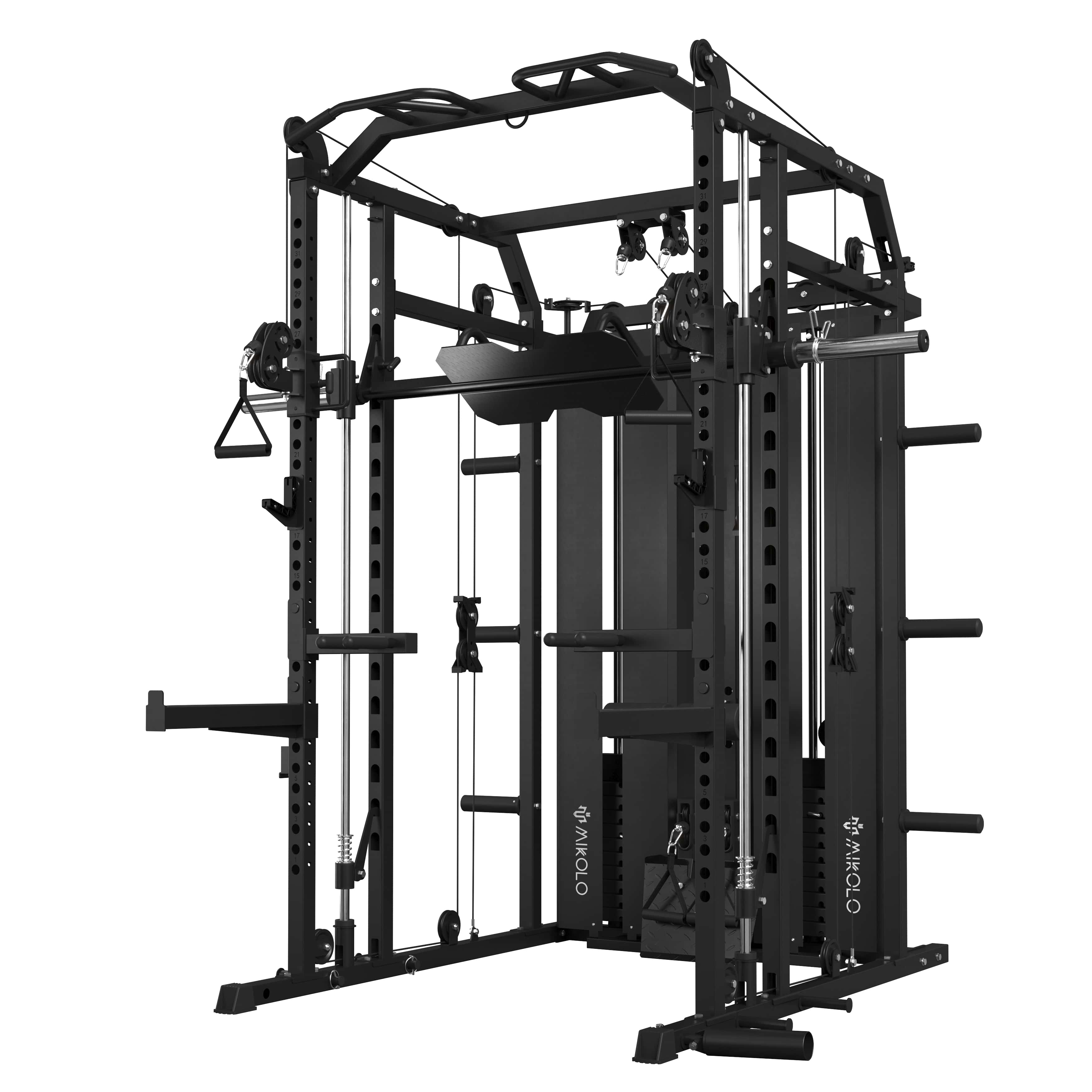When it comes to building muscle, a common question many gym-goers ask is: can machines really build muscle? Or is it better to stick to free weights? Let’s break down the facts, clear up the confusion, and find out how machines can play a role in serious strength gains.
Do Machines Build Muscle?
The simple answer is yes — machines can absolutely build muscle. Strength training machines, when used correctly, create the resistance your muscles need to grow. Whether you're pushing against a stack of weights on a chest press machine or pulling down on a lat pulldown, your muscles are being challenged, which triggers the repair and growth process essential for muscle building.
The main factor that determines muscle growth isn’t what you lift — it’s how you lift. If the machine provides enough resistance to push your muscles close to failure, you’re creating the stimulus needed for growth.
Are Machines Good for Building Muscle?
Machines are especially good for building muscle for a few key reasons:
-
Consistency of movement: Machines guide your path, making it easier to maintain proper form, especially when you're learning.
-
Targeted isolation: If you want to focus on a specific muscle group without worrying about balancing a barbell or dumbbell, machines make it easier.
-
Safer training to failure: Since you don’t have to stabilize the weight yourself, it’s safer to push yourself close to muscular failure — a critical element for building strength and size.
For beginners, older adults, and even seasoned lifters during high-volume hypertrophy training, machines offer a reliable way to overload muscles with minimal risk.
Build Muscle with Machines: Smart Strategies
To build muscle with machines, follow the same training principles you'd use with free weights:
-
Progressive overload: Continuously increase the weight, reps, or sets over time.
-
Controlled reps: Slow, deliberate movements will challenge your muscles more than swinging through the motion.
-
Focus on effort: Each set should feel challenging, ideally ending 1–2 reps shy of failure.
-
Train major muscle groups: Use machines to cover your bases: chest press, leg press, lat pulldown, cable rows, and more.
A well-structured machine-based program can be incredibly effective if you stay consistent and push yourself.
Can You Build Muscle on Machines Alone?
You can build muscle on machines alone — and many people do. Especially if you’re working around injuries, recovering from surgery, or new to strength training, machines offer a controlled environment to safely challenge your muscles.
However, keep in mind that machines mostly train muscles in fixed paths. Free weights demand more from your stabilizer muscles and coordination, which can help with overall athleticism and functional strength. For most people, a combination of machines and free weights is ideal, but there’s no rule saying machines alone can’t get the job done.
Is It Bad to Only Use Machines at the Gym?
It’s not "bad" to only use machines at the gym — especially if your main goal is hypertrophy (muscle growth), injury recovery, or just building foundational strength. Machines can deliver fantastic results when used properly.
That said, if you have specific goals like improving balance, sports performance, or functional fitness, you might eventually want to add some free-weight exercises into your routine. Machines are excellent tools, but like any tool, they’re most effective when used thoughtfully alongside other methods over time.
Final Thoughts: Do Machines Build Muscle?
So, do gym machines build muscle? Without a doubt. Do machine weights build muscle? Absolutely. Do workout machines build muscle? Yes.
The critical piece is your effort, consistency, and progressive overload — not whether the weight is attached to a machine or a barbell. If you train hard, recover well, and stay consistent, machines can be a powerful ally in your muscle-building journey.
Focus on intensity, smart progression, and challenging yourself — whether you're on a cable machine, a leg press, or a bench press. Growth will follow.










































Leave a comment
This site is protected by hCaptcha and the hCaptcha Privacy Policy and Terms of Service apply.